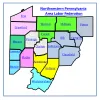Educational Funding Opportunities

Educational funding is available through a variety of resources. Union members and their dependants should check with their Local Unions, District Councils, Central Labor Councils, Area Labor Federations, State AFL-CIO, National or International Union, and the National AFL-CIO to see if there are any scholarship opportunities.
For Scholarship Opportunities in our area check the category titled "Scholarships".
Links to all AFL-CIO affiliated National Labor Unions are under the category to the left called "National Labor Organizations".
The category titled Links to websites of our affiliates may be helpful to others.
There are many other sources of scholarships available like http://www.fastweb.com and http://www.finaid.org to name a few.
There are volumes (extremely large resource books) available at the "Resource Desk" of your local public library that can be used to access information about grants and scholarships from numerous sources. The public library may also have a computer lab with an INTRANET that you can search for scholarships and grants on. (An intranet is a private computer network that uses Internet Protocol technologies to securely share any part of an organization's information or network operating system within that organization.)
To find small local awards that aren't listed in any book or database, look for notices posted on bulletin boards at your school's guidance office, the public library and outside the financial aid office at nearby colleges and universities.
You can also search for scholarships using your favorite web search engine by including the word "scholarships" with your search keywords.
College alumni and other private scholarship sponsor occasionally establish scholarships with esoteric eligibility requirements, such as a scholarship for left-handed students. Although there aren't many of these unusual scholarships, they often attract a lot of attention because of their slightly offbeat nature.
The most prestigious scholarships and fellowships also attract a lot of attention because they are among the most lucrative and competitive awards. Many colleges also offer full tuition academic scholarships.
Average students often ask whether there are any scholarships available to students who don't have a 4.0 GPA. There are many scholarships for average students that focus on qualities besides academic merit, as well as a variety of less competitive scholarships. There are also many community service scholarships and scholarships for Hispanic and Latino students.
Most scholarship search sites do not allow children under age 13 to register because of the Children's Online Privacy Protection Act (COPPA). Unfortunately, this prevents parents from finding out about scholarships for students under age 13. FinAid has compiled a comprehensive list of college scholarships for students under age 13 and in grades K-8.
Don't waste your money on fee-based scholarship matching services. You won't get any better information than you can get from the free services available on the Web.
Once you've identified the scholarships for which you are eligible, FinAid has many good suggestions on how to maximize your chances of winning a scholarship.
Scholarships that sound too good to be true usually are. Learn how to recognize and protect yourself from the most common scholarship scams. The number one tip: If you have to pay money to get money, it's probably a scam
It is important to ask the school's financial aid office about its outside scholarship policy since this can affect how much you benefit from winning a scholarship if you are receiving need-based student aid.
A portion of your scholarship might be taxable. Usually, amounts used for tuition and required fees are tax-free, but you should review the rules to ensure that you report the scholarship correctly.
